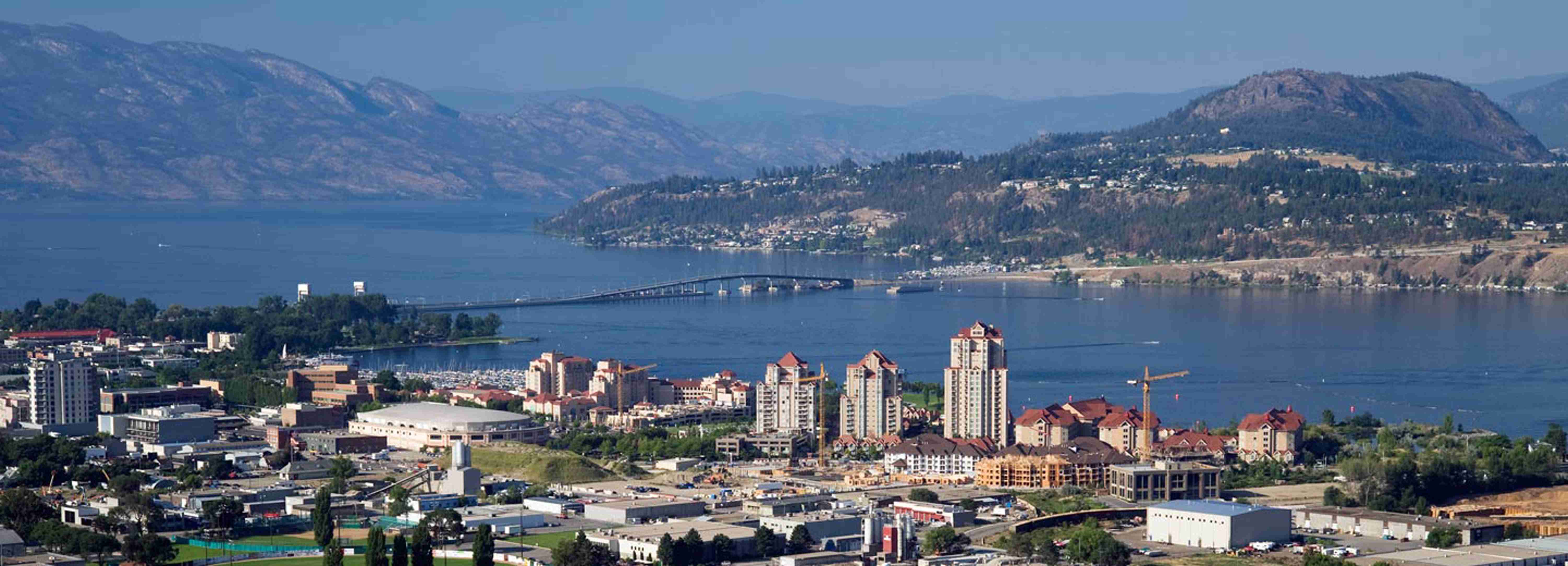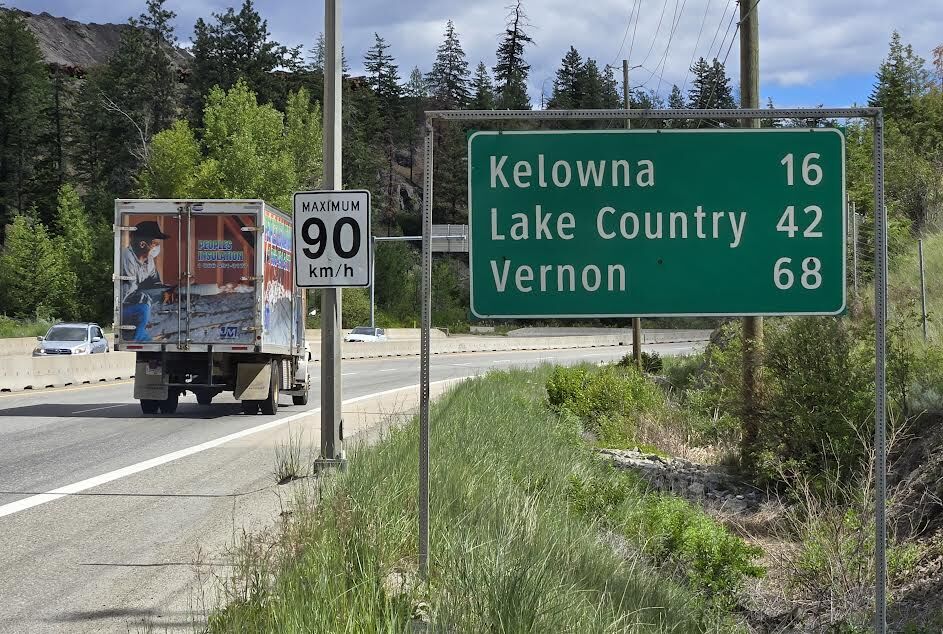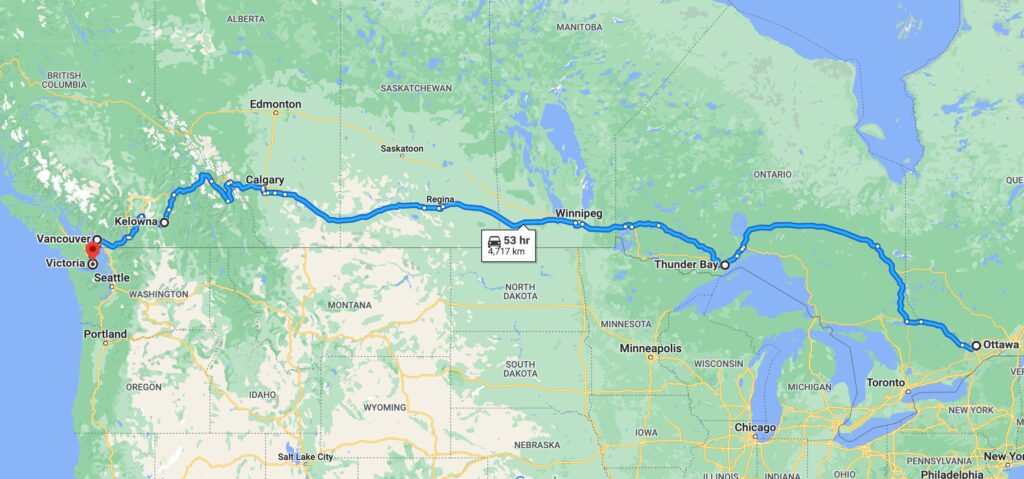Moving From Toronto To Kelowna
Are you considering leaving the hustle and bustle of Toronto behind for the laid-back lifestyle of Kelowna? You're not alone. Many individuals and families are making the move from Ontario's largest city to the Okanagan Valley's largest city, attracted by Kelowna's natural beauty, outdoor recreation opportunities, and more relaxed pace of life. But what does it take to make this move a success? From finding a new home to navigating the local job market, we'll explore the key factors to consider when moving from Toronto to Kelowna.

Why You Should Consider Moving from Toronto to Kelowna
Moving from Toronto to Kelowna can be a great decision for those looking to escape the hustle and bustle of city life and enjoy a more relaxed pace. Kelowna, located in the heart of British Columbia, offers a unique blend of natural beauty, outdoor recreation, and modern amenities. Here are some reasons why you should consider making the move:
Improved Work-Life Balance
One of the main advantages of moving from Toronto to Kelowna is the opportunity to achieve a better work-life balance. Kelowna's more relaxed pace of life allows for more time to focus on personal interests and hobbies, rather than being consumed by the demands of city living. With a lower cost of living and a more manageable commute, you'll have more time and energy to devote to the things that matter most.
Unparalleled Natural Beauty
Kelowna is surrounded by stunning natural beauty, with the Okanagan Lake and surrounding mountains offering endless opportunities for outdoor recreation. From hiking and biking to water sports and skiing, Kelowna has something for everyone. Imagine being able to trade in the concrete jungle of Toronto for a life surrounded by nature's splendor.
Affordable Housing Options
Compared to Toronto, Kelowna offers a much more affordable housing market. The average price of a single-family home in Kelowna is significantly lower than in Toronto, making it an attractive option for those looking to upgrade their living situation or invest in a vacation property. With a range of housing options available, from apartments to single-family homes, there's something for every budget and lifestyle.
Thriving Cultural Scene
While Kelowna may not have the same level of cultural attractions as Toronto, it has a thriving arts and culture scene that is worth exploring. From the Kelowna Art Gallery to the Okanagan Symphony Orchestra, there are plenty of opportunities to engage with the local artistic community. Additionally, Kelowna hosts a range of festivals and events throughout the year, celebrating everything from wine to music to cultural heritage.
Abundant Job Opportunities
Despite its smaller size, Kelowna has a growing economy with a range of job opportunities in industries such as technology, healthcare, and tourism. The city is also home to a number of startups and entrepreneurs, making it an attractive option for those looking to start their own business. With a lower cost of living and a more relaxed pace of life, Kelowna offers the perfect environment to pursue your career goals.
| Category | Toronto | Kelowna |
|---|---|---|
| Cost of Living | High | Lower |
| Housing Prices | Average price: $1,000,000+ | Average price: $600,000+ |
| Commuting Time | 60-90 minutes | 20-30 minutes |
| Natural Beauty | Urban parks and green spaces | Surrounded by lakes, mountains, and forests |
| Cultural Attractions | World-class museums and galleries | Smaller, but thriving arts and culture scene |
Is it worth moving to Kelowna?

Kelowna, a city located in the Okanagan Valley of British Columbia, Canada, is a popular destination for those looking to relocate. With its stunning natural beauty, mild climate, and growing economy, Kelowna has a lot to offer. However, like any place, it's essential to weigh the pros and cons before making a decision.
Pros of Moving to Kelowna
Kelowna offers many advantages that make it an attractive option for people looking to move. Some of the key benefits include:
- Natural Beauty: Kelowna is surrounded by stunning natural landscapes, including Okanagan Lake, mountains, and forests, making it an ideal location for outdoor enthusiasts.
- Mild Climate: Kelowna has a mild climate with warm summers and mild winters, making it perfect for people who enjoy outdoor activities year-round.
- Growing Economy: Kelowna's economy is growing rapidly, driven by industries such as technology, healthcare, and tourism, providing many job opportunities.
Cons of Moving to Kelowna
While Kelowna has many advantages, there are also some drawbacks to consider. Some of the key disadvantages include:
- Housing Costs: The cost of housing in Kelowna is relatively high, making it challenging for people to afford a home.
- Traffic and Congestion: As Kelowna grows, traffic and congestion have become a problem, making commuting time-consuming.
- <strong.Job Competition: While Kelowna's economy is growing, the job market can be competitive, especially in certain industries.
Lifestyle in Kelowna
Kelowna offers a unique lifestyle that combines the benefits of a small town with the amenities of a larger city. Some aspects of the lifestyle in Kelowna include:
- Outdoor Activities: Kelowna is an outdoor enthusiast's paradise, with plenty of opportunities for hiking, biking, skiing, and water sports.
- Cultural Events: Kelowna hosts a range of cultural events throughout the year, including festivals, concerts, and art exhibitions.
- Community Spirit: Kelowna has a strong sense of community, with many residents actively involved in local organizations and initiatives.
Is Kelowna cheaper than Toronto?
Kelowna and Toronto are two popular cities in Canada, but they have distinct differences in terms of cost of living. Here's a breakdown of the costs to help you decide if Kelowna is cheaper than Toronto.
Housing Costs
One of the most significant expenses in any city is housing. Rent and mortgage prices vary greatly between Kelowna and Toronto. In Kelowna, the average rent for a one-bedroom apartment is around $1,100 per month, while in Toronto, it's approximately $2,000 per month. When it comes to buying a home, the median house price in Kelowna is around $640,000, compared to over $1 million in Toronto.
Food and Transportation Costs
Food and transportation costs can add up quickly, but Kelowna tends to be more affordable in these areas. Here are some examples:
A liter of milk costs around $1.30 in Kelowna, compared to $1.80 in Toronto.
A loaf of bread costs around $2.50 in Kelowna, compared to $3.50 in Toronto.
A monthly public transportation pass costs around $90 in Kelowna, compared to $156 in Toronto.
Taxes and Utilities
Taxes and utilities are other essential expenses to consider when evaluating the cost of living in Kelowna and Toronto. Here are some key differences:
The average property tax rate in Kelowna is around 0.55%, compared to 0.61% in Toronto.
The average cost of electricity, heat, and water for a small apartment in Kelowna is around $150 per month, compared to $200 per month in Toronto.
Income tax rates are generally lower in British Columbia, where Kelowna is located, compared to Ontario, where Toronto is located.
Are people moving away from Kelowna?

Kelowna, a city in the Okanagan Valley of British Columbia, Canada, has been experiencing rapid growth in recent years. However, despite its popularity, there are signs that some people are moving away from Kelowna. This could be due to various reasons, including the high cost of living, limited job opportunities, and the desire for a slower pace of life.
High Cost of Living
The cost of living in Kelowna has been increasing rapidly, making it challenging for some residents to afford the lifestyle they want. This is particularly true for first-time homebuyers, who are finding it difficult to enter the housing market. According to data from the Canadian Real Estate Association, the average house price in Kelowna is over $700,000, making it one of the most expensive cities in Canada. As a result, some people may be choosing to move away from Kelowna in search of more affordable options.
- The average rent for a one-bedroom apartment in Kelowna is over $1,500 per month.
- Food prices in Kelowna are higher than in many other cities in Canada.
- The cost of transportation, including gas and insurance, is also relatively high in Kelowna.
Limited Job Opportunities
While Kelowna has a strong tourism industry, the job market is not as diverse as in larger cities. This can make it challenging for people to find employment in their field, particularly those with specialized skills. As a result, some individuals may be moving away from Kelowna in search of better job opportunities. According to data from Statistics Canada, the unemployment rate in Kelowna is higher than in many other cities in British Columbia.
- The tourism industry is seasonal, which can lead to job insecurity for some workers.
- There are limited opportunities for tech professionals in Kelowna, compared to cities like Vancouver or Toronto.
- The city's economy is heavily reliant on small businesses, which can make it challenging for large corporations to set up operations.
Desire for a Slower Pace of Life
Kelowna is known for its fast-paced and active lifestyle, which may not appeal to everyone. Some people may be moving away from Kelowna in search of a slower pace of life, where they can enjoy a more relaxed atmosphere. This could be particularly true for retirees, who are looking to escape the hustle and bustle of city life.
- Kelowna has a high population density, which can contribute to a faster pace of life.
- The city's popular recreational activities, such as hiking and biking, may not appeal to everyone.
- Some people may prefer a more quiet and peaceful environment, which Kelowna may not be able to offer.
How long does it take to drive from Toronto to Kelowna through Canada?

The driving distance from Toronto, Ontario to Kelowna, British Columbia is approximately 4,347 kilometers (2,700 miles). The driving time can vary depending on several factors, including the route taken, traffic conditions, and the number of stops made along the way.
The Most Direct Route
The most direct route from Toronto to Kelowna is via the Trans-Canada Highway, which spans across the country from coast to coast. This route takes you through the provinces of Ontario, Manitoba, Saskatchewan, Alberta, and British Columbia. Here are some key stops along the way:
- Winnipeg, Manitoba: Known for its rich history and cultural attractions, Winnipeg is a great place to stop and explore.
- Calgary, Alberta: This vibrant city is home to the famous Calgary Stampede and offers a variety of outdoor activities.
- Banff National Park, Alberta: Take a detour through this stunning national park and enjoy the breathtaking scenery.
Driving Time and Road Conditions
The driving time from Toronto to Kelowna can take around 46-50 hours, assuming you drive for around 8-10 hours per day. However, this time can vary depending on the road conditions, which can be affected by weather, construction, and traffic. Here are some tips to keep in mind:
- Winter driving: If you're driving during the winter months, be prepared for snow, ice, and fog, and make sure your vehicle is equipped with winter tires.
- Road closures: Check for road closures and construction before you leave, and plan your routeaccordingly.
- Rest stops: Take regular breaks at rest stops to stretch your legs, graba snack, and refuel.
Accommodations and Attractions
Along the way, you'll find a variety of accommodations, from budget-friendly motels to luxury resorts. Here are some attractions to consider:
- Lake Louise, Alberta: This picturesque lake is a must-visit, with its turquoise waters and stunning mountain backdrop.
- Jasper National Park, Alberta: Take a detour through this beautiful national park and enjoy the wildlife viewing opportunities.
- Osoyoos, British Columbia: Stop in this charming town and visit the Osoyoos Desert Centre to learn about the unique ecosystem.
FAQ
What are the main differences between Toronto and Kelowna in terms of cost of living?
The cost of living in Kelowna is significantly lower compared to Toronto. Housing costs are one of the most notable differences, with the average house price in Kelowna being around $700,000, whereas in Toronto, it's around $1,000,000. Additionally, rental prices in Kelowna are also lower, with the average rent for a one-bedroom apartment being around $1,300, compared to $2,000 in Toronto. Furthermore, food prices are also relatively lower in Kelowna, with the average cost of groceries being around 10-15% lower compared to Toronto. However, it's essential to note that salaries in Kelowna are also generally lower than in Toronto, so it's crucial to factor that into your decision.
How do I transport my belongings from Toronto to Kelowna?
Transporting your belongings from Toronto to Kelowna can be a daunting task, but there are several options to consider. One popular choice is to hire a professional moving company that specializes in long-distance moves. These companies will handle the packing, loading, and transporting of your belongings, making the process much easier for you. Another option is to rent a moving truck and do the move yourself, which can be more cost-effective but requires more effort and time. Additionally, you can also consider shipping certain items, such as furniture or boxes, via freight services or courier companies. Whatever option you choose, make sure to research and compare prices, services, and reviews to ensure a smooth and stress-free move.
What are some things I should consider when planning my move from Toronto to Kelowna?
When planning your move from Toronto to Kelowna, there are several things to consider to ensure a smooth transition. Researching the local job market and understanding the job opportunities in your field is crucial, as Kelowna's economy is smaller compared to Toronto's. You should also research neighborhoods and find a place to live that suits your needs and budget. Additionally, understanding the local culture and community in Kelowna is essential, as it may differ from what you're used to in Toronto. Furthermore, planning your transportation and logistics, such as how you'll get around without a car, should also be on your radar. Lastly, notifying important parties, such as your bank, credit card company, and healthcare provider, of your address change is vital to avoid any disruptions.
What are some things I'll miss about Toronto when I move to Kelowna?
When moving from Toronto to Kelowna, there are several things you may miss about the city. The diversity and multiculturalism of Toronto are unparalleled, and you may find that Kelowna lacks the same level of cultural diversity. You may also miss the world-class restaurants and nightlife that Toronto has to offer, as Kelowna's dining and entertainment scenes are smaller. Additionally, the proximity to international airports and the ease of traveling to other parts of the world may be something you take for granted in Toronto but miss in Kelowna. Furthermore, the anonymity of city living may be something you miss, as Kelowna is a smaller city where everyone knows each other. However, Kelowna has its own unique charm and benefits, and you may find that the outdoor recreation opportunities and small-town feel make up for what you're leaving behind in Toronto.
